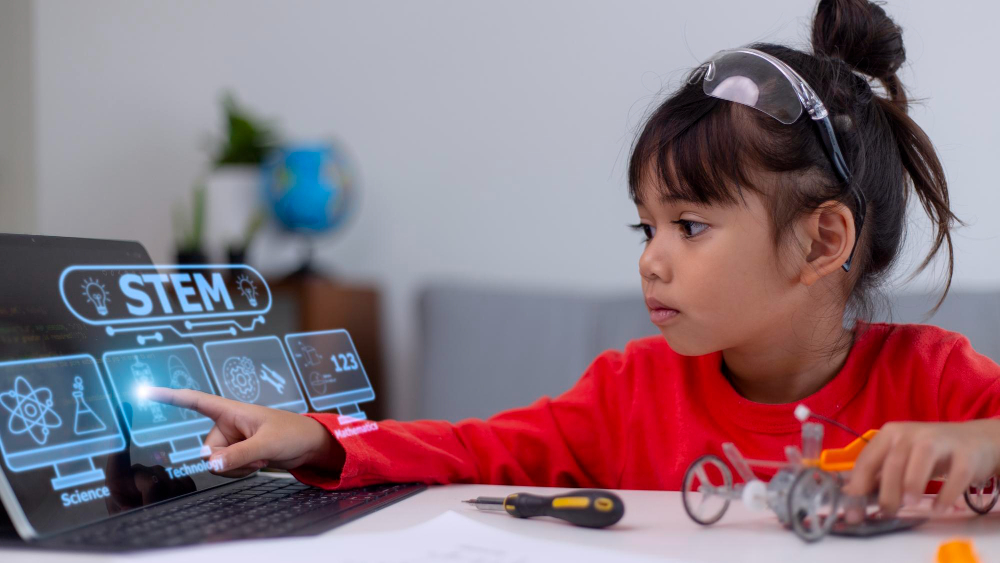
Thursday, 20Nov 2025
Adaptive Learning Technology Transforms Educational Personalisation: Creating Tailored Pathways for Every Student
Beyond One-Size-Fits-All Education Adaptive learning technology transforms…

Thursday, 30Oct 2025
Digital assessment strategies revolutionize how educators measure, understand, and support student learning, creating unprecedented opportunities for meaningful evaluation. The limitations of traditional testing—single-point measurements, delayed feedback, and narrow skill assessment—have long frustrated educators seeking deeper insights into student understanding. Research demonstrates that well-designed digital assessments increase student engagement by 37%, improve knowledge retention by 28%, and provide 89% more actionable data for instructional decision-making. These aren’t minor improvements; they represent a fundamental shift in how assessment serves the learning process.
Conventional testing approaches create several critical challenges:
These limitations create assessment experiences that often feel disconnected from authentic learning and fail to provide the insights needed for effective instructional decisions.
Effective learning requires continuous feedback rather than end-point evaluation:
A middle school mathematics program implemented embedded formative assessments and saw a 42% reduction in summative assessment failures as problems were identified and addressed earlier in the learning process.
Authentic tasks provide deeper insights than traditional testing:
These approaches measure application and transfer rather than simple recall, providing more meaningful insights into student capabilities.
One-size-fits-all testing fails to provide optimal measurement:
A school district implemented adaptive assessment technology and reduced testing time by 35% while increasing the precision of student skill measurement.
Traditional written responses limit expression for many students:
These diverse response options allow students to demonstrate understanding through their strongest communication channels.
Digital assessment transforms mathematics evaluation:
These approaches measure mathematical thinking rather than just answer correctness, providing insights into student reasoning processes.
Reading and writing assessment becomes more meaningful through:
A high school English department implemented digital writing assessment with process tracking and saw significant improvements in revision quality and final composition scores.
Science assessment shifts from fact recall to process understanding:
These approaches align assessment with authentic scientific practices rather than simple knowledge recall.
Historical and civic understanding requires specialized assessment:
These assessments measure the analytical thinking central to social studies rather than memorization of isolated facts.
Effective assessment systems combine multiple approaches:
This balanced approach provides comprehensive insights while avoiding over-testing.
Assessment value comes primarily from the feedback it enables:
A school science program redesigned assessment to prioritize feedback quality and saw student self-correction rates increase by 67%.
Assessment data must flow seamlessly into instructional decision-making:
These connections transform assessment from measurement to actionable intelligence that drives instructional improvements.
Assessment should build assessment literacy and ownership:
These approaches help students become assessment-capable learners who understand and drive their own improvement.
Digital assessment requires technology infrastructure:
These adaptations ensure that technology limitations don’t create assessment inequities.
Educators need support to implement new assessment approaches:
This capacity building ensures that new assessment tools translate into improved instructional decisions.
Assessment should enhance rather than dominate learning time:
These approaches respect instructional time while maintaining assessment quality.
Digital assessment generates sensitive student data:
These protections ensure that assessment benefits don’t come at the cost of privacy concerns.
Effective assessment systems improve learning outcomes:
These indicators demonstrate that assessment is serving its fundamental purpose of enhancing learning.
Assessment should support rather than undermine motivation:
A school that redesigned its assessment approach saw a 58% reduction in assessment anxiety while maintaining rigorous standards.
Assessment should visibly influence teaching:
These connections demonstrate that assessment data actively improves educational experiences.
As technology continues to evolve, several emerging approaches show promise:
Artificial intelligence is transforming assessment capabilities:
These technologies extend assessment capabilities while maintaining human judgment where it matters most.
Virtual environments create new assessment possibilities:
These approaches bring assessment closer to real-world application while maintaining measurement precision.
Assessment is evolving beyond discrete events:
These approaches transform assessment from periodic events to continuous understanding of student development.
Digital assessment strategies represent more than just modernized testing—they offer a fundamental rethinking of how measurement serves learning. By providing timely, specific feedback, measuring deeper understanding, and adapting to individual needs, these approaches transform assessment from a judgment tool into a learning catalyst.
The most effective educational programs recognize that assessment is not separate from learning—it is integral to the process. By implementing thoughtfully designed digital assessment strategies, educators can create evaluation experiences that students approach as valuable learning opportunities rather than dreaded judgments.
Learning Owl specializes in developing custom digital assessment solutions specifically designed for K-12 educational environments. Our team combines deep assessment expertise with cutting-edge technology to create evaluation experiences that provide meaningful insights while supporting student growth and teacher decision-making.
Contact Learning Owl today to discover how our digital assessment strategies can revolutionize your approach to student evaluation and create assessment experiences that accelerate rather than merely measure learning.

Thursday, 20Nov 2025
Beyond One-Size-Fits-All Education Adaptive learning technology transforms how educational content responds to individual learner needs, creating unprecedented opportunities for personalized mastery across diverse student populations. Traditional educational approaches—standardized content delivery,…
Read More line_end_arrow_notch
Monday, 17Nov 2025
Reimagining Scientific Discovery STEM eLearning innovations transform how students engage with scientific and mathematical concepts, creating unprecedented opportunities for deeper understanding and authentic inquiry. Traditional science and mathematics education—textbook explanations,…
Read More line_end_arrow_notch
Thursday, 13Nov 2025
Beyond Checkbox Compliance Compliance training strategies transform how insurance organizations approach regulatory requirements, converting what many view as burdensome obligations into operational advantages. The insurance industry faces one of the…
Read More line_end_arrow_notch